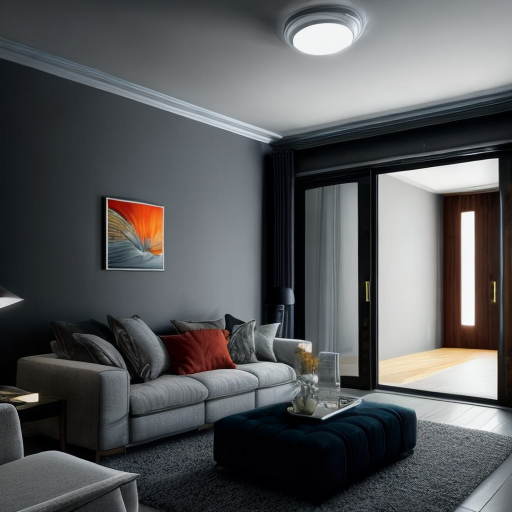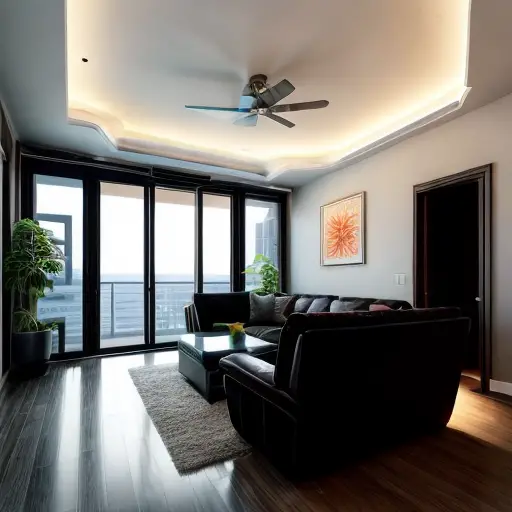Understanding the Concept of a Smart Home
Picture this: you walk into your home, and it greets you like a long-lost friend. Lights flicker on, the thermostat adjusts to your preferred temperature, and your favorite tunes start playing softly in the background. No, you haven't stumbled into a sci-fi movie; welcome to the world of smart homes! A smart home is like having your own personal butler, except it doesn't wear a suit and won't judge you for eating cereal for dinner. It's a house that's been upgraded with the latest technology, making your life easier and more convenient. From controlling appliances with a simple voice command to monitoring your home's security from your smartphone, a smart home is the epitome of modern living. So, say goodbye to fumbling for light switches and hello to a future where your home is as smart as you are (or at least close to it).
Exploring the Benefits of a Smart Home
A smart home refers to a residence equipped with various devices and systems that can be controlled remotely and automated to enhance convenience, comfort, and energy efficiency. An interesting fact about smart homes is that they can adapt to the occupants' habits and preferences. For example, using artificial intelligence and machine learning algorithms, a smart home can learn when you typically wake up and adjust the temperature, lighting, and even start brewing your coffee before you even step out of bed. This personalized automation not only saves time but also creates a seamless and tailored living experience.
Imagine a world where your home anticipates your every need, like a psychic genie in a bottle. A smart home is not just a fancy buzzword; it's a game-changer that brings a plethora of benefits to your doorstep. First and foremost, it's all about convenience. Forgot to turn off the lights before leaving? No problem, just whip out your smartphone and do it remotely. Want to create the perfect ambiance for a movie night? Let your smart home handle the lighting, temperature, and even the popcorn machine. But it doesn't stop there. A smart home also enhances your safety and security, with features like smart locks, surveillance cameras, and motion sensors. Plus, it's an energy-saving superhero, optimizing your energy usage and reducing your carbon footprint. So, say hello to a world where your home is not just a shelter, but a smart, intuitive companion that makes life a whole lot easier.
Components and Technologies that Define a Smart Home

A smart home is like a symphony, with various components and technologies working together harmoniously to create a seamless and intelligent living space. At the heart of a smart home are the smart devices, which are the building blocks of this technological marvel. These devices, such as smart thermostats, smart lights, and smart appliances, are equipped with sensors and connectivity that allow them to communicate and be controlled remotely.
One of the key technologies that define a smart home is the Internet of Things (IoT). This network of interconnected devices enables them to share information and work in tandem. Through the power of IoT, you can control your entire home with a single command, whether it's adjusting the temperature, dimming the lights, or starting your coffee maker.
Another crucial component of a smart home is the hub or central control system. This hub acts as the brain of your smart home, connecting all the devices and allowing you to manage them from a single interface. With the hub, you can create customized schedules, set up automation rules, and receive notifications about the status of your devices.
Voice assistants, such as Amazon Alexa or Google Assistant, have also become an integral part of smart homes. These virtual companions listen to your commands and carry them out, making it even easier to control your smart devices. Whether you want to turn on the TV, play your favorite playlist, or order a pizza, just ask your voice assistant, and it will make it happen.
Lastly, smart home security systems play a vital role in ensuring the safety and peace of mind of homeowners. These systems include features like smart locks, video doorbells, and motion sensors, which can be monitored and controlled remotely. With real-time alerts and the ability to view live feeds, you can keep an eye on your home even when you're away.
In conclusion, a smart home is a technological marvel that brings together various components and technologies to create a connected and intelligent living space. From smart devices and IoT to central control systems and voice assistants, these elements work in harmony to make your life easier, more convenient, and secure. So, embrace the future and transform your home into a smart sanctuary that caters to your every need.
The Future of Smart Homes: Trends and Innovations
A fun fact about what a smart home means is that it can actually help you save money on your energy bills! Smart home devices, such as smart thermostats and smart lighting, can automatically adjust settings based on your preferences and occupancy patterns, optimizing energy usage and reducing wastage. So, not only does a smart home make your life more convenient, but it can also be eco-friendly and cost-effective!
The future of smart homes is a tantalizing glimpse into a world where technology seamlessly integrates into every aspect of our lives. As we continue to push the boundaries of innovation, new trends and advancements are emerging to redefine what a smart home can be. One of the key trends is the integration of artificial intelligence (AI) and machine learning, allowing our homes to learn our preferences and adapt accordingly. Imagine a home that anticipates your needs, adjusting the lighting, temperature, and even suggesting recipes based on your dietary preferences. Another exciting development is the rise of smart appliances that communicate with each other, creating a truly interconnected ecosystem. From your refrigerator ordering groceries to your washing machine coordinating with your dryer, the possibilities are endless. Additionally, the integration of renewable energy sources and energy management systems is becoming increasingly important, allowing homeowners to reduce their carbon footprint and save on energy costs. With these trends and innovations, the future of smart homes promises a world where technology seamlessly enhances our lives, making our homes more intuitive, efficient, and sustainable.

